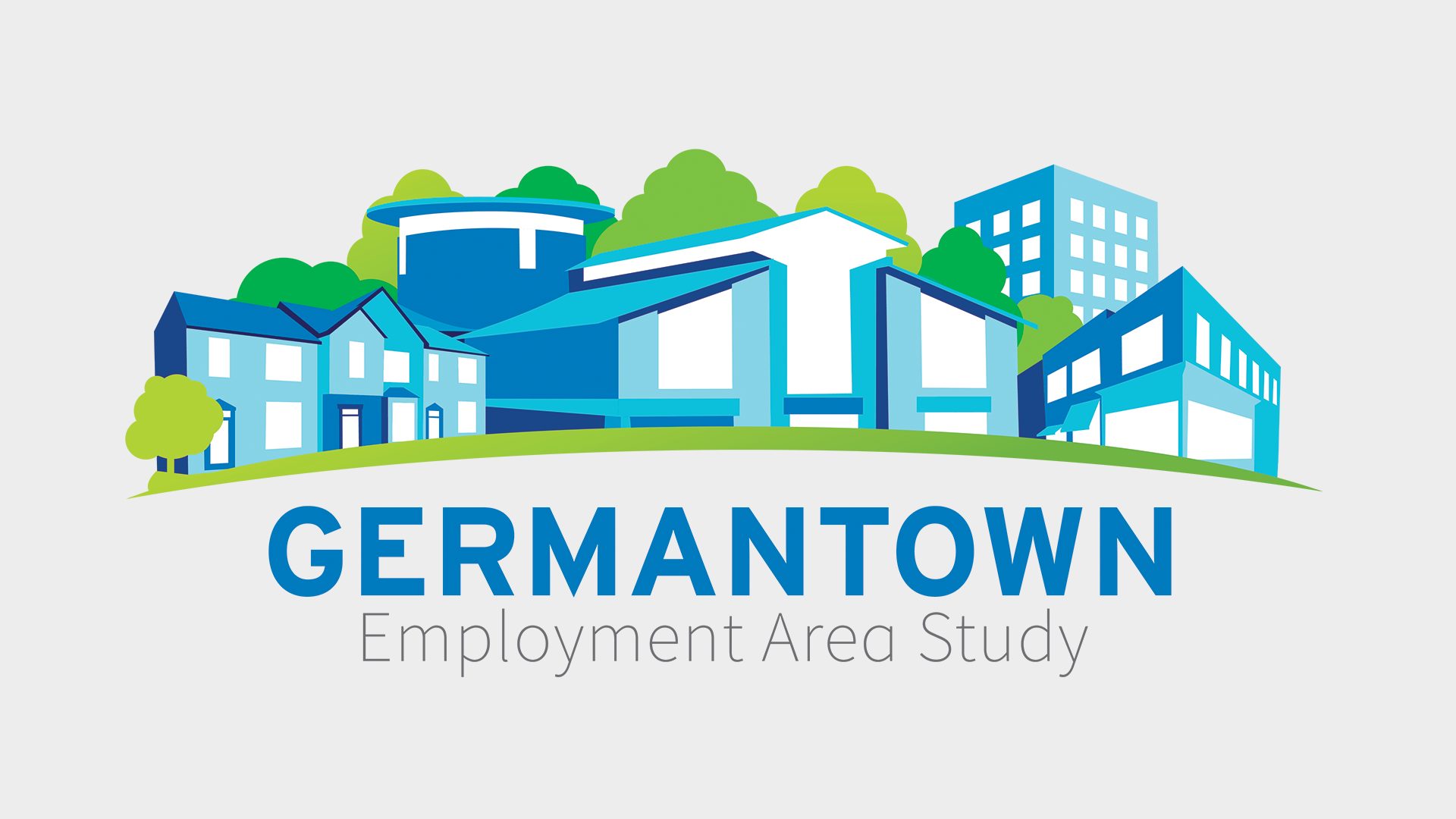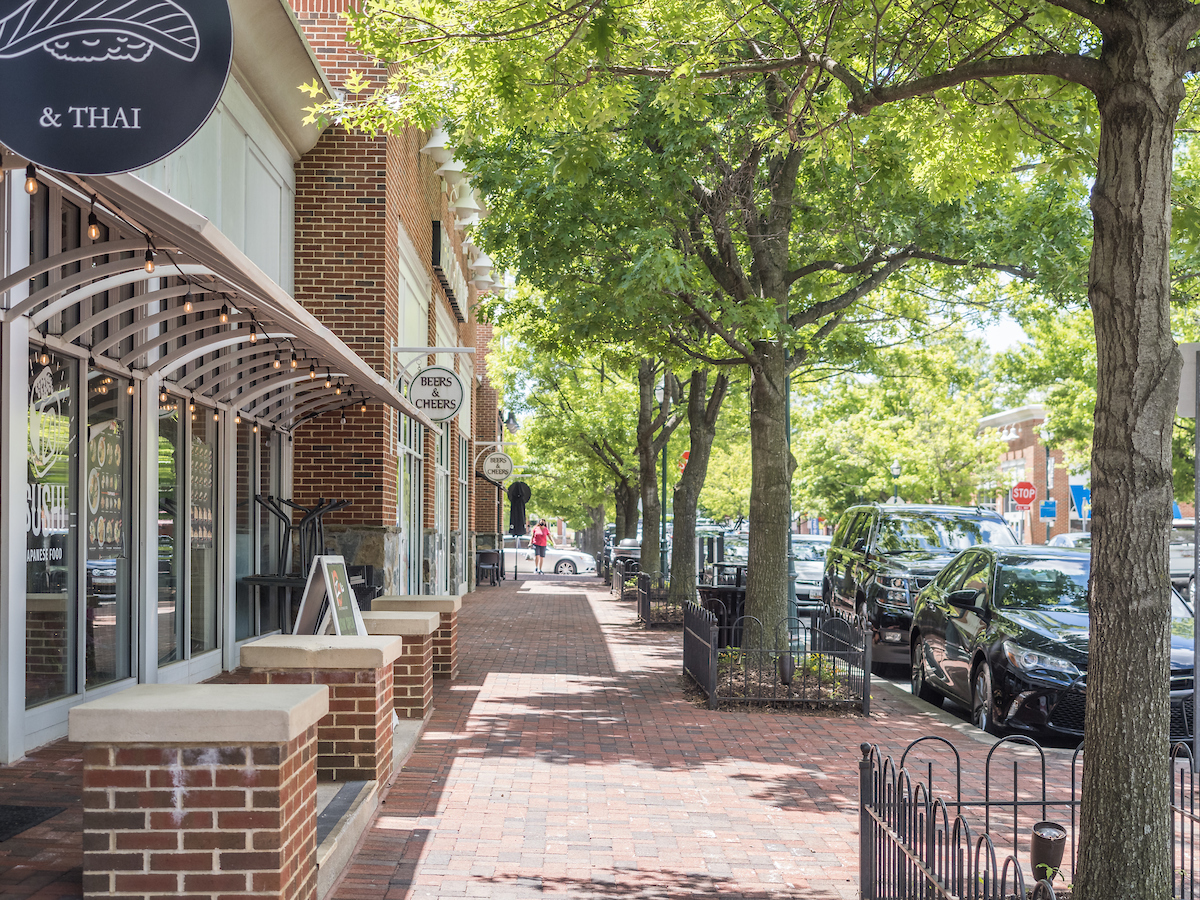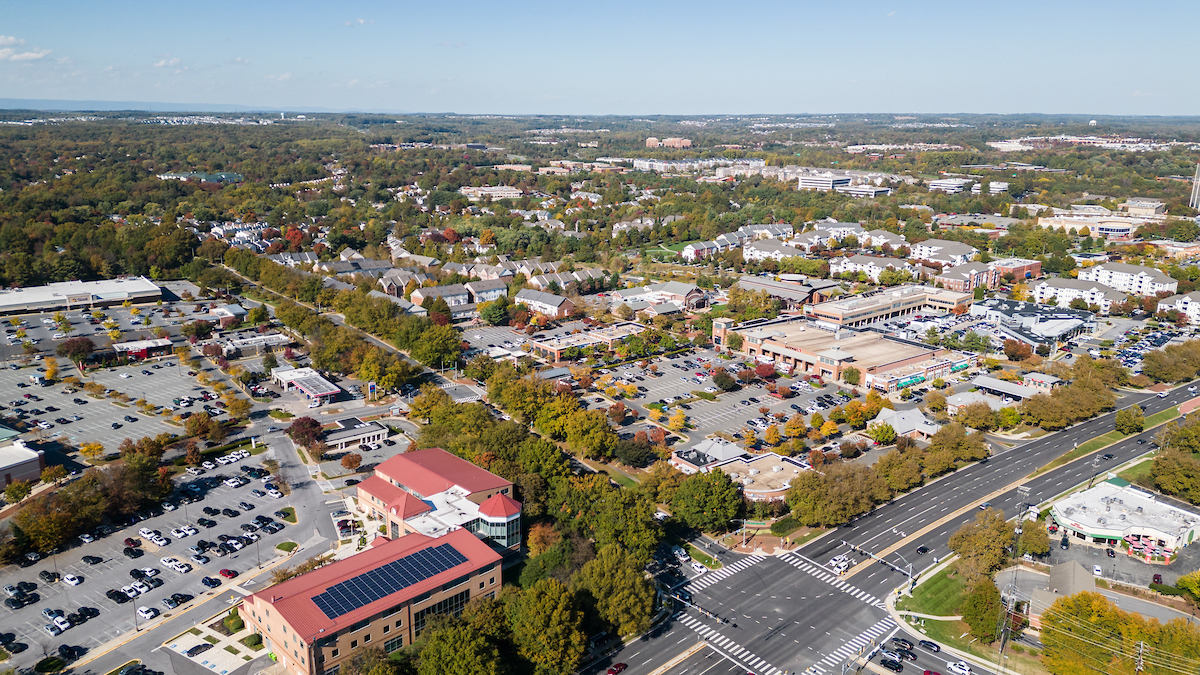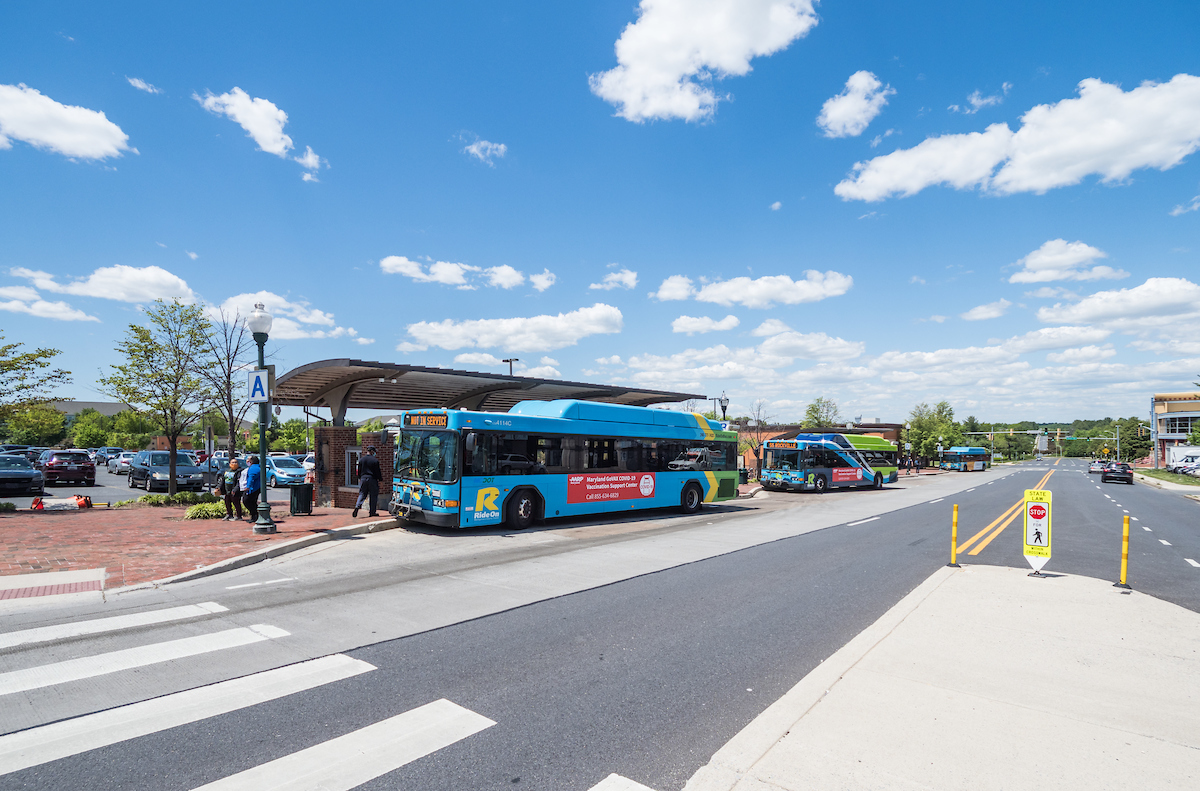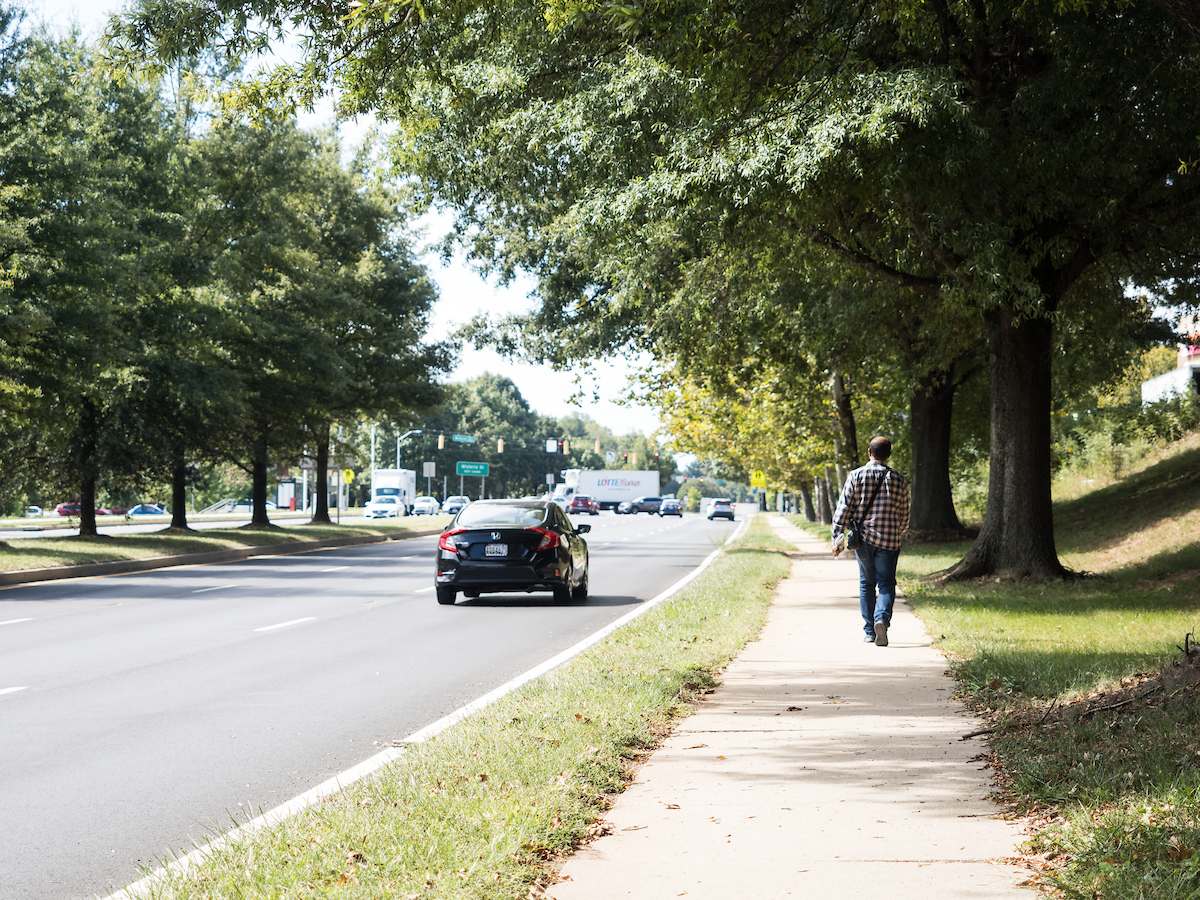The 2009 Germantown Employment Area Sector Plan established a vision to transform Germantown’s central employment corridor into a vibrant town center and mixed-use districts, but the plan area has not grown as expected in the years since. Some parts of the Sector Plan area have realized that vision, while others have yet to develop accordingly and have seen densities, occupancies, and public improvements fall short of their potential. The plan’s anticipated residential and employment growth has not kept pace with projections, and the area has been slow to transition its suburban-style commercial areas—with low-rise buildings and large areas of surface parking—into compact, walkable places, especially in the 2009 Plan’s Town Center Core, Cloverleaf, and North End districts.
In early 2024, Montgomery Planning Staff began the Germantown Employment Area Study, an effort to assess the state of employment in the plan area and evaluate the 2009 Plan’s land use and zoning recommendations. The study included community outreach and engagement, an employment and economic analysis, and scenario modeling of potential alternative futures for the Germantown activity centers along I-270. The initial findings of the study indicated that a plan amendment is necessary to respond to changing market conditions and provide recommendations that will better guide the plan area’s future. During the Fall Semiannual presentation on November 12, 2024, the County Council approved an update to the Planning Department’s work program to transition the Germantown Employment Area Study into an amendment of the 2009 Plan.
Study Goal
The goal of this study was to assess how well the 2009 Germantown Employment Area Sector Plan attracted employment opportunities and realized other recommendations, and to determine what, if any, interventions may be needed to support the Plan in the future.
Community Open Houses
Thank you to the Germantown community for attending our three open house events in May and June! It was great to chat with everyone about the Germantown Employment Area Study and hear your thoughts on the future of your neighborhoods and the surrounding area.
Your input helped us develop an existing conditions and community feedback report that is expected to be presented to the Montgomery County Planning Board in the winter of 2025.
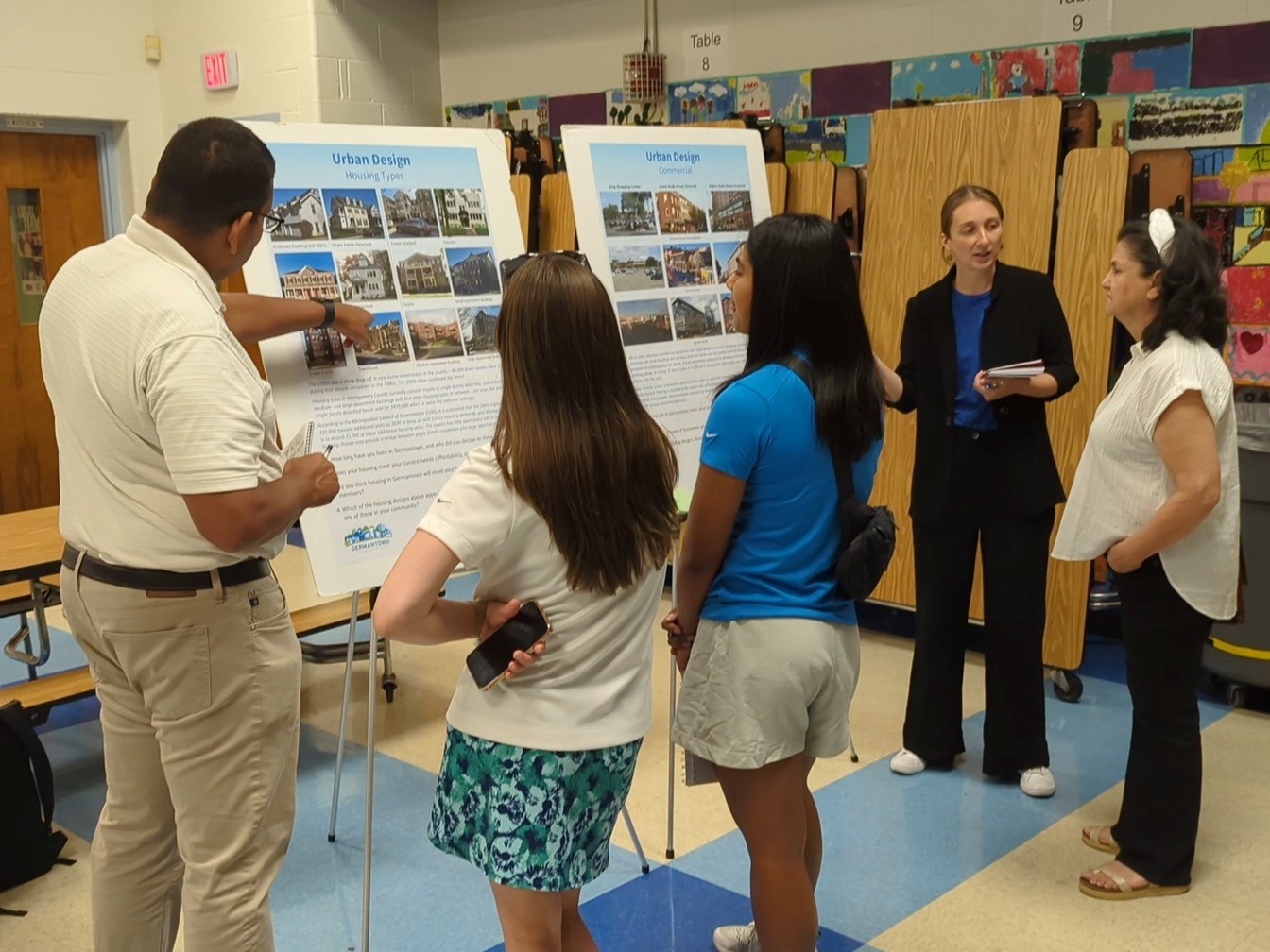
Scope of Work
Montgomery Planning staff presented the Study’s Scope of Work to the Planning Board on February 8, 2024.
Why Now?
The timing of the study is related to a change in approach for the Corridor Cities Transitway (CCT), a previously planned transportation facility, as well as the need to respond to continued trends in the county’s high vacancy office market, especially following the COVID-19 pandemic, and a desire to enhance Germantown’s town center and economic activity.
Process
Montgomery Planning begins a study by collecting information about the people who live and work in the area and information about the area itself—its homes and businesses, its growth patterns and environmental needs, and its economic and physical relationships to the surrounding county. Through interactive questionnaires, meetings, and events with community organizations, local business owners, government entities, and other stakeholders, we determine what the future of the area may look like and how we can best enable a version that is equitable, viable, and carries forward what people love about their community as-is. This study is expected to be completed within one calendar year, by the end of 2024.
Community Engagement
Living, working, and visiting the area means that you have insights into what is wonderful in the community and what needs improvement! Your opinion is a vital part of the master planning process, ensuring that this study reflects the community’s values and shared vision. Throughout the engagement process, our team will be learning about the various groups and individuals that make up the Germantown community, and we will explore how to best highlight and reflect your interests through urban design, architecture, and open space planning. Understanding this sense of place will be essential to ensuring a bright future. The planning team will consider community feedback and ideas to inform study’s findings.
Timeline
-
February 2024Scope of work presentation
-
February – April 2024Initial public outreach and stakeholder meetings
-
February – July 2024Study Existing Conditions and Conduct Online Survey
-
May – June 2024Community Open Houses
-
July – October 2024Prepare Study Report
-
November 2024Study Transitioned to Sector Plan Amendment
